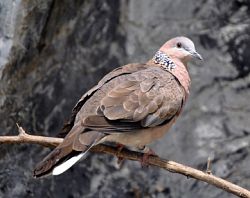

A 24 mile stretch of coastline in Cornwall has been designated as a marine Special Protected Area (SPA) in order to safeguard its wildlife. The area is home to more than 150,000 rare seabirds, including little terns and black-throated divers. Great northern divers and Eurasian spoonbills are also visitors. All are amber-listed by conservation groups as they have suffered significant losses of numbers and range in recent years.
SPAs are conservation areas concerned with the protection of important bird species, designated under the Directive 2009/147/EC, on the conservation of wild birds, and form part of the Europe-wide Natura 2000 network of internationally important sites. Each EU Member State is responsible for protecting these areas.
This SPA has been created to help minimise disturbance to the birds that feed there and those that use the coastal areas of Cornwall as a safe haven during the Winter months. Rare birds blown off course during migration will also make occasional unscheduled stops in the area. Around 2,500 birds arrive in the UK every winter, with the largest numbers landing in Scotland. A further marine SPA has been announced in the Irish sea, between the Isle of Man and Anglesey. This area is home to the largest known aggregation of Manx shearwaters, with an estimated population of 12,000.
This latest addition to Britain's marine SPAs significantly expands the UK Blue Belt programme, supporting delivery of the UK government's manifesto commitment to provide long term protection of over four million square kilometres of marine environment. The programme provides £20 million of funding over four years to improve scientific understanding of the marine environment, develop and implement marine management strategies, and ensure management is sustainable and long term. The Blue Belt programme already protects 23% of UK waters, and consists of over 300 sites across land.
The BBC series Blue Planet II was cited as an influence on ongoing efforts to expand the Blue Belt, as it has highlighted the importance of protecting our marine environment and the wildlife that relies on healthy seas. The chairman of Natural England, Andrew Sells, claimed that extending the Blue Belt was a vital measure in protecting the UK's wildlife.